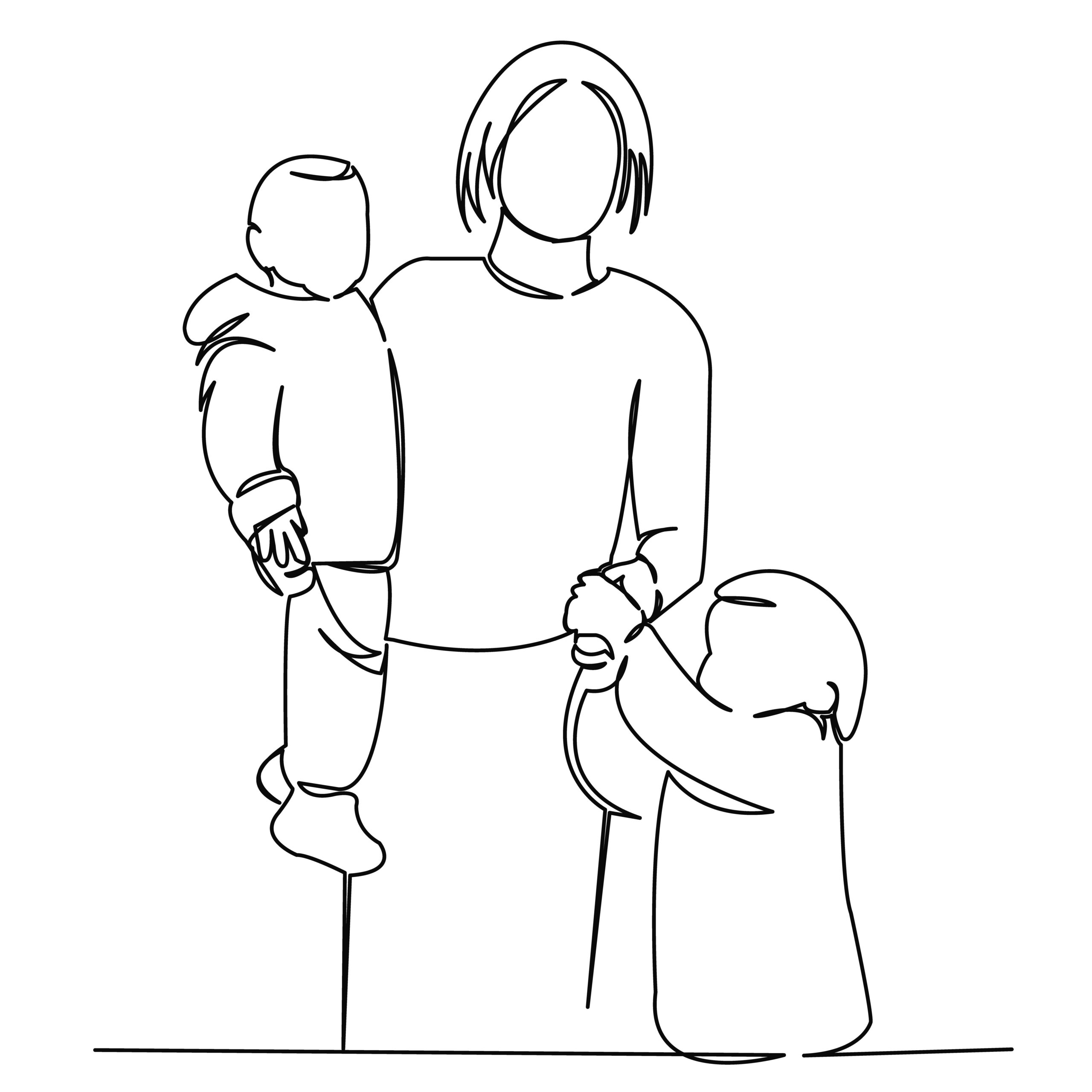
February 7, 2024
Child Tax Credit Bill Would Increase Marriage Penalties for Working Single Mothers
H.R. 7024, the Tax Relief for American Families and Workers Act of 2024, was passed by the House last week and is now moving to the Senate for consideration. The bill would change the Child Tax Credit (CTC) in several ways. The two most contentious changes are a one-year lookback for the refundable portion of…

February 6, 2024
Research by a Top Biden Administration Economist Reinforces the Importance of Work Incentives in the Child Tax Credit and the Safety Net
For the past two years, economist Jacob Bastian has been the main researcher dedicated to trumpeting the virtues of a child tax credit (CTC) expansion. Writing first as an economist from academic perches at Rutgers and Princeton, later as an affiliate of moderate think tanks like the Niskanen Center and the R Street Institute, and…

January 31, 2024
The Wyden-Smith Child Tax Credit and Work: Responding to Critics
The Wyden-Smith tax bill under consideration in the House has rekindled a debate about the Child Tax Credit (CTC) and work incentives. We, along with our colleagues, Angela Rachidi and Matt Weidinger, recently released an analysis of the incentives built into one overlooked feature of the CTC reforms proposed in the bill—the so-called “look-back” provision….

January 30, 2024
How Sensitive Are Single Mothers’ Work Decisions to a Change in Incentives? Correcting Misperceptions of the Evidence
Let’s start with a table. (With apologies to our mobile audience…) Evidence on Extensive Margin Employment Elasticities for Single Mothers Reported Revised Consistent w/ 0.75? Notes Reviews or Based on Reviews Corinth et al. (2021, rev 2022) 0.75 — p. 22; based on midpoint of McClelland and Mok (2012), p. 5 (below); unpublished…

January 29, 2024
Per-Child Benefit in Wyden-Smith Child Tax Credit Bill Would Discourage Full-Time Work for Families with Multiple Children
The Wyden-Smith proposed tax legislation would make four changes to the Child Tax Credit (CTC). First, it would increase the cap on the refundable portion of the CTC, eventually to the same amount as the maximum non-refundable CTC. Second, it would begin indexing the maximum non-refundable CTC with inflation. Third, it would apply a one-year lookback for…

January 19, 2024
The Work Incentive and Employment Effects of Eliminating the Child Tax Credit’s Annual Income Requirement
Abstract Senior House and Senate tax committee leaders agreed to a framework for modifying the Child Tax Credit on January 16, 2024. The most consequential reform would eliminate the Child Tax Credit’s annual income requirement by allowing individuals to calculate their eligibility using their current or prior year’s income, whichever year maximizes the family’s benefit….

December 12, 2023
Underserved: A Conversation with Ja’Ron Smith and Chris Pilkerton
Event Summary On December 12, AEI’s Scott Winship and former Trump administration officials Ja’Ron Smith and Chris Pilkerton discussed how policymakers can improve the lives of people in underserved communities across the country. Mr. Smith and Mr. Pilkerton began with a presentation connecting President Abraham Lincoln’s opportunity agenda with traditional conservative economic philosophy. They explained…

December 11, 2023
Has Inequality Made Americans Poorer than Bulgarians, Russians, and Filipinos?
A recent column by John Burn-Murdoch in the Financial Times presents statistics side-by-side showing that “the wealthiest Americans are the richest people in the developed world, but America’s poorest are also the most likely to go hungry.” The chart buttressing the latter part of that conclusion shows that in over 12 percent of American households,…

November 14, 2023
Did Child Poverty Really Increase Last Year?
In 2021, Democrats succeeded in temporarily expanding the child tax credit (CTC) as part of President Biden’s American Rescue Plan. Previously, the maximum CTC of $2,000 per child was available only to workers with income tax liability and who exceeded an earnings threshold. The expansion gave every family $3,000 per child—$3,600 for younger children—regardless of whether…

October 31, 2023
It Takes Two
It is indisputable that children are better off living with two nurturing parents who are in a stable, loving relationship compared to any other living situation. But it gets more contentious from there. Does “stability” require marriage? How important is it to live with two biological parents? What if one (or both) adults are not…